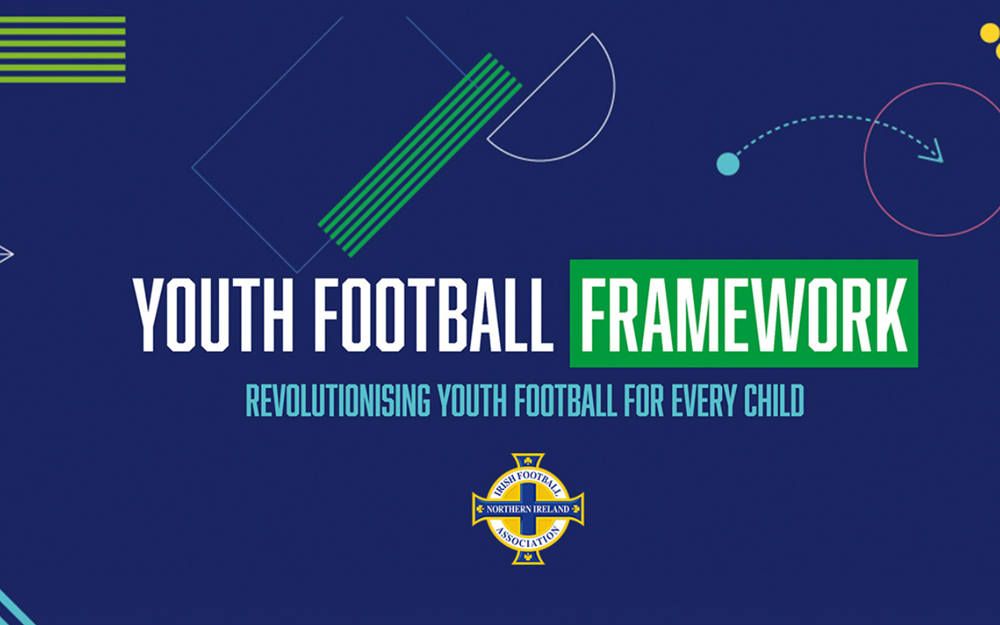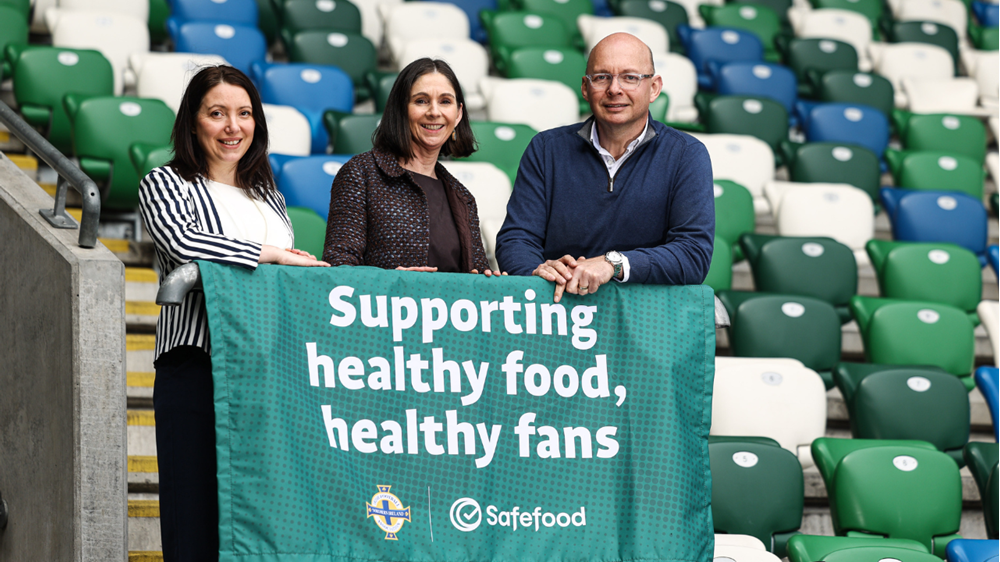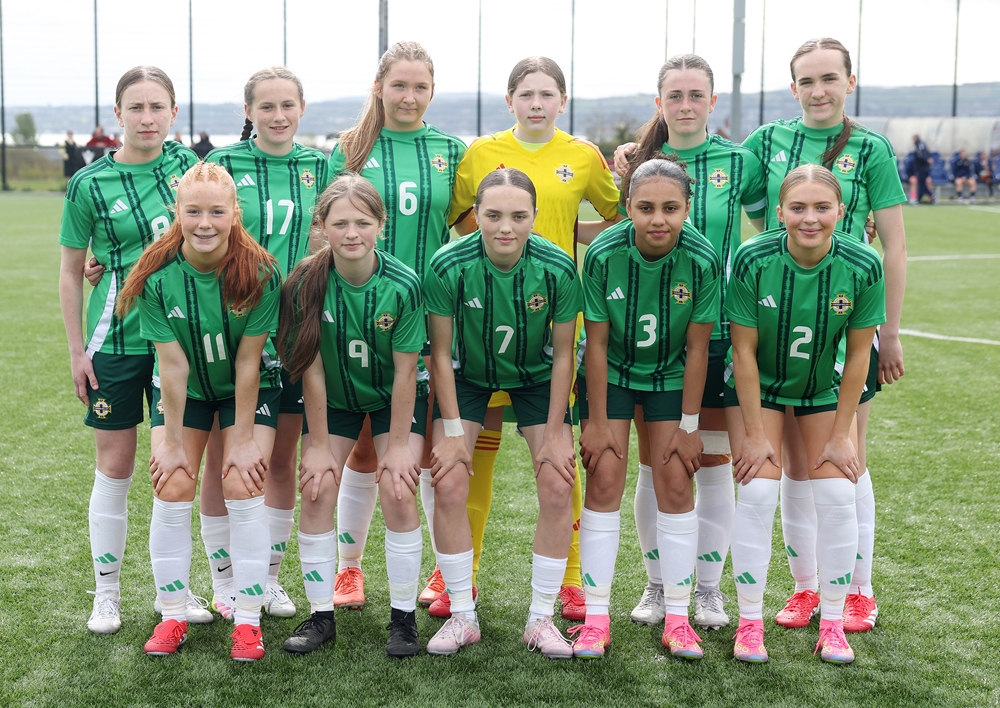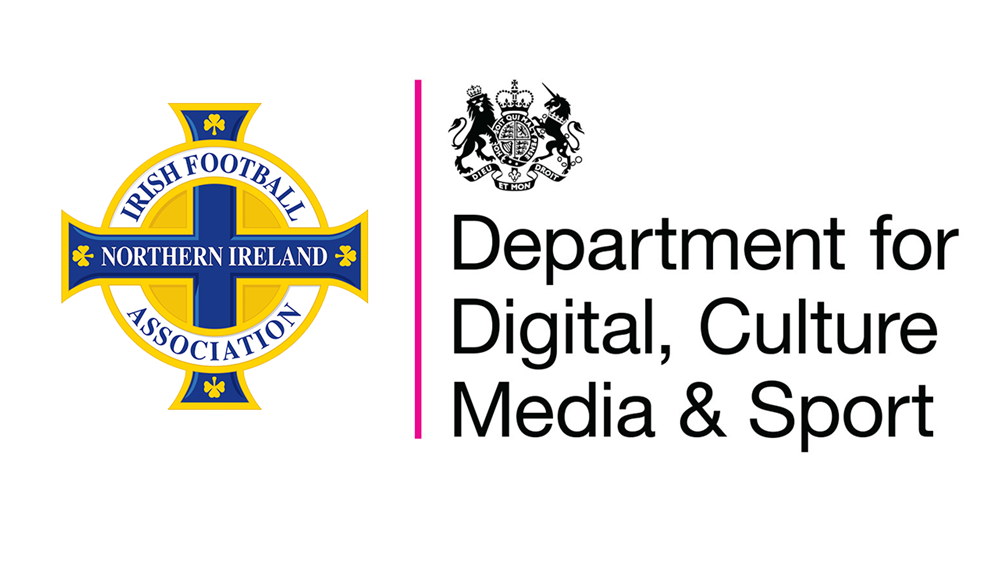
The Irish Football Association today launched a Youth Football Framework aimed at revolutionising youth football in Northern Ireland.
The framework has been created following an extensive review by the association into youth football provision across the country.
It aims to maximise enjoyment and technical development for every child and young person and is built around four key pillars: Game, Education, Environment and Governance.
The Irish FA consulted widely with stakeholders at every level of the game, and especially with clubs and coaches operating at youth level, when developing the framework.
James Thompson, Director of Foundation at the Irish FA, pointed out: “We are extremely excited to launch the Youth Football Framework.
“The framework covers all elements of youth football, from coaches and parents, the performance and everyday game, to the environment in which the game is played, including pitches, equipment and nets. We are committed to moving all of youth football across Northern Ireland forward together.”
The framework aims to create a supportive and productive playing environment for children and young people here. It will give coaches, referees, parents and supporters a key role in making that happen.
And through it all games at youth level will be tailored to players’ stage of development.
The Director of Foundation further explained: “The young player is the core reason behind every component of the framework. The framework will align and provide further consistency to youth football in Northern Ireland, applying the same rules and adopting the same guidance for parents and coaches.
“Together with clubs, youth leagues and key partners we are going to revolutionise youth football in Northern Ireland.”
There will be a phased approach to implementing the framework, beginning with players at the earliest stages of development first.
Aaron Hughes, the Irish FA’s Technical Director, explained the framework is centred around the child and the aim is to attract more children to play, keep players in the game for longer and to develop more technically gifted football players.
He said: “Our approach is tailored with game formats ranging from 3v3 to the more traditional 11v11, each designed to meet the developmental needs of children at various ages.
“It’s a comprehensive effort to ensure football remains a source of enjoyment, learning and camaraderie for our young players.”
The youth review which led to the creation of the framework consisted of four phases over a 12-month period. During each phase research and consultation was independently led by Ulster University.
More than 150 clubs engaged with the process through more than 250 hours of consultation. Players, coaches, parents, teachers, referees and club administrators got involved. Focus groups were also established, and technical and steering groups were set up, too.
In addition there were almost 24,000 responses to a survey which formed part of the review into youth football in Northern Ireland.
Thompson added: “Over the next five years we are going to triple our annual financial investment into the youth game and increase the presence of Irish FA officers within youth leagues and clubs.
“We want people who are passionate about the framework and want to lead the change in their club or school to contact us to see how they can help to implement it. Working closely with Irish FA officers, there will be an opportunity for direct club and school support.”
Measurement of the impact of the framework on young players, coaches and the wider football community will be ongoing, and the Irish FA is committed to refining and evolving it.
For further information contact youth.framework@irishfa.com
The Youth Football Framework can be viewed at https://youthfootball.irishfa.com/




















